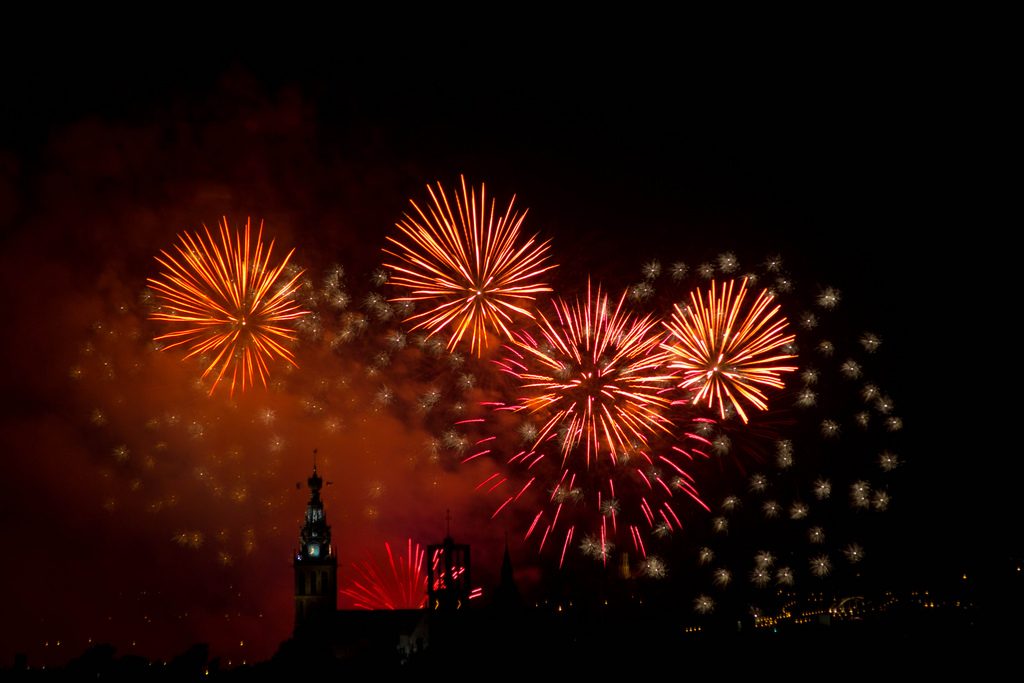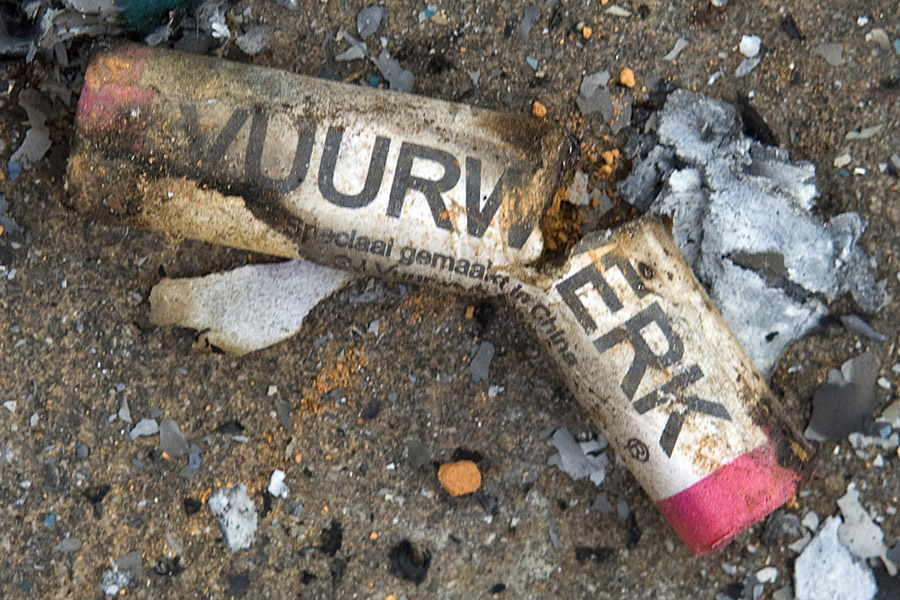Vuurwerk: Should it be restricted? Posted by Sten on Dec 31, 2018 in Culture, Dutch Language, Dutch Vocabulary
Oudejaarsavond (New Year’s Eve) and vuurwerk (fireworks) are inseparable in the Netherlands. No jaarwisseling (turn of the year) without the loud knallen (bangs) and bright kleuren (colors) of the vuurpijlen (rockets) and rotjes (firecrackers)! However, this vuurwerk also has a dark side. Every year, there are hundreds of accidents with these dangerous producten (products) that lead to ernstige letsels (serious injuries), from losing fingers to losing eyesight. Should, perhaps, vuurwerk be forbidden? Or is there a better solution?
De Traditie
De traditie (the tradition) to use vuurwerk during the jaarwisseling comes from the belief that the geluid (noise) and flitsen (flashes) would verjagen (chase away) the boze geesten (evil spirits) who could bring ellende (misery) to the next year. So the more geluid and geflits, the better!
However, that bijgeloof (superstition) is long gone. Nowadays, people just buy vuurwerk for the fun, the beauty and the traditional, gezellige value that people find in it.V
Only Public Vuurwerk?
Vuurwerk always leads to a lot of ellende. Even though vuurwerk is only allowed to be sold in the last days before the jaarwisseling, and it is only allowed to be fired in a restricted time frame, there is still a lot of misuse. For example, in several places, including Utrecht, hulpverleners (relief workers) were bekogeld (bombarded) with vuurwerk when doing their work. Every year, there are hundreds of incidents with vuurwerk.
From 2015 to 2016, the number of incidents went down, but probably only because the time frame in which the vuurwerk was allowed to be fired was limited. So the question arises – can this number be brought down even further if only public vuurwerk is allowed, and private use is completely prohibited?
In parliament, there are voorstanders (supporters) and tegenstanders (objectors) to the idea. The voorstanders give the slachtoffers (victims), schade (damage) and overlast (trouble) as reasons. The tegenstanders think it goes against the vrijheid van het individu (freedom of the individual). While many people are in favor of a verbod (prohibition), it still is a gevoelig (sensitive) topic, because many people attach a lot of value to the traditie.
A compromise for now are vuurwerkvrije zones (fireworks-free zones), which a few dozen gemeentes (municipalities) have implemented in the past few years. However, these do not always seem effective.
The ideal could be only openbaar vuurwerk (public fireworks), organised by the municipality and ignited by professionals. The scale could be bigger and the spectacle could be even more beautiful, and the chance of accidents could be minimized.
There is still illegal vuurwerk, of course. The question could also be posed what would happen with the illegal market if currently legal vuurwerk is also made illegal. Would the problem only get worse because of unsafe vuurwerk?
What do you think? Let me know in the comments below!
For now, I wish you a gelukkig nieuwjaar and please be safe! I will see you all next year again!

Build vocabulary, practice pronunciation, and more with Transparent Language Online. Available anytime, anywhere, on any device.





